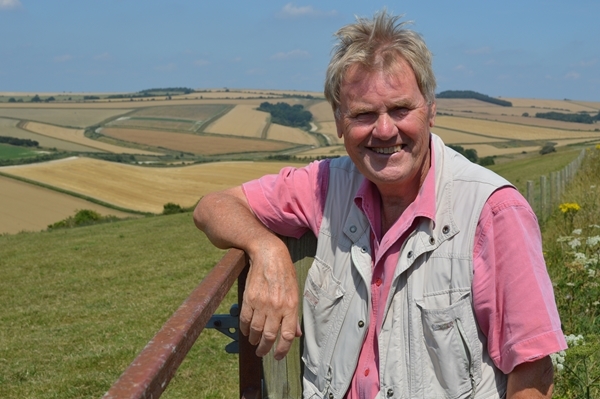
THE Dick Potts Legacy Fund, formed in memory of the late internationally-recognised British ecologist, is open to new applications.
Early-career scientists and land managers looking for funds to cover the cost of scientific projects can apply now.
Applications from projects on farmland wildlife, flora and associated habitats to cover general costs for research supplies and equipment, travel and software will be considered.
“The fund provides a great chance for researchers just starting out on their careers or who are returning to ecology, where a financial boost could make a world of difference,” said Dr Julie Ewald, an advisor to the legacy fund.
“Projects that are agro-ecological, and that Dick would have found exciting, are looked upon favourably.”
Last year, two early-career scientists - Susan Hammond and Manuel Püttmans - benefited from the fund.
Susan was awarded a grant to research beetles in Sussex and collect samples for a final third year of surveying as part of her MSc in entomology at Harper Adams University.
The results are being compared to those Dr Paul Vickerman collected in the 1970s and Dr Potts collected in the summer of 2016, before he passed away. Beetles were collected in pitfall traps - a trapping pit for insects - and the results allow a comparison between the 1970s and the current day, with both increases and decreases in beetle numbers (https://www.gwct.org.uk/blogs/news/2019/january/changes-in-ground-beetle-communities-on-arable-land-in-sussex-over-40-years/)
The other 2018 fund recipient, Manuel, applied for funds to help his research on skylark ecology at the University of Göttingen in Germany, where he is studying for a PhD.
He is looking at the habitat use of individual skylarks on farmland through the breeding season and at food availability in these habitats. Manuel used tiny radio transmitters on skylarks during the nesting season to observe their habitat use and combined this with insect monitoring to determine the food available to skylarks in this habitat (https://www.gwct.org.uk/blogs/news/2018/december/dick-potts-legacy-funding-skylark-project/)
Dr Ewald added: “The fund’s advisors are really pleased with the performance of both the 2018 recipients.
“Dick would have found both projects “brilliant” and spent days in the field with both these young researchers. Unfortunately, he cannot do that, but the Legacy Fund has helped to carry on Dick’s vision of how field ecology can provide practical solutions for farming and farmland wildlife.”
The Dick Potts Legacy Fund was set-up shortly after Dr Potts’ death on 30th March 2017 when his wife Olga received a host of heartfelt letters from ecologists whom he had inspired and encouraged over the years.
Olga thought it would be fitting to encourage the next generation of people who wanted to study and protect the ecology of farmland in the same practical way as Dr Potts.
A series of generous donations have been made in honour of Dr Potts for the fund which is looking to award grants between £500 and £3,000, but other good projects will be considered.
Dr Potts was appointed director-general of the Game Conservancy Trust in 1993 - which became the Game & Wildlife Conservation Trust in 2007 – before retiring in 2001.
He continued to work tirelessly in many retirement projects up until his death.
If you would like to follow in the footsteps of Dr Potts, and apply for funding, follow the guidelines below:
Those researchers wanting to use the fund for 2019 field season projects should apply by March 31st. All others, with projects starting later, should apply by June 30th.
To apply, visit https://www.gwct.org.uk/dickpotts
Notes to editors
The Game & Wildlife Conservation Trust – providing research-led conservation for a thriving countryside. The GWCT is an independent wildlife conservation charity which has carried out scientific research into Britain’s game and wildlife since the 1930s. We advise farmers and landowners on improving wildlife habitats. We employ more than 60 post-doctoral scientists and other research staff with expertise in areas such as birds, insects, mammals, farming, fish and statistics. We undertake our own research as well as projects funded by contract and grant-aid from government and private bodies.
For information, contact:
Eleanor Williams
Telephone: 07592 025476
Email: press@gwct.org.uk